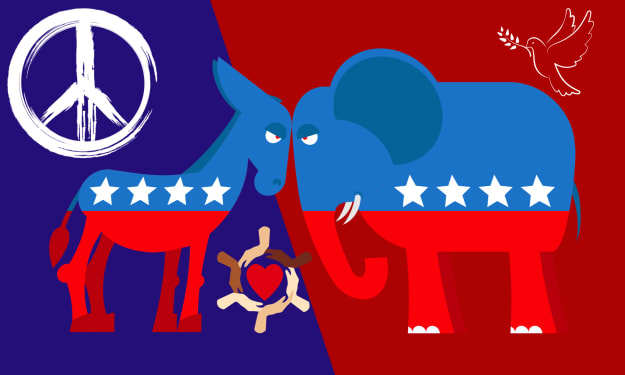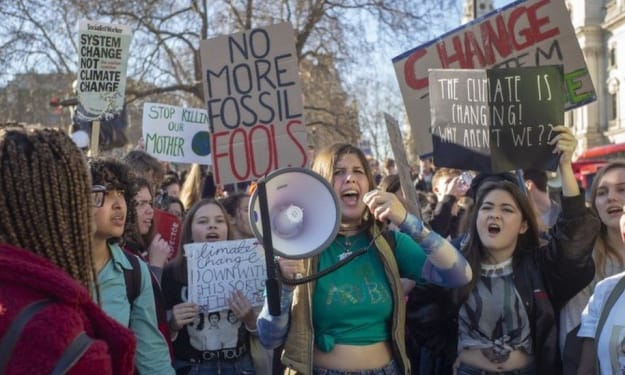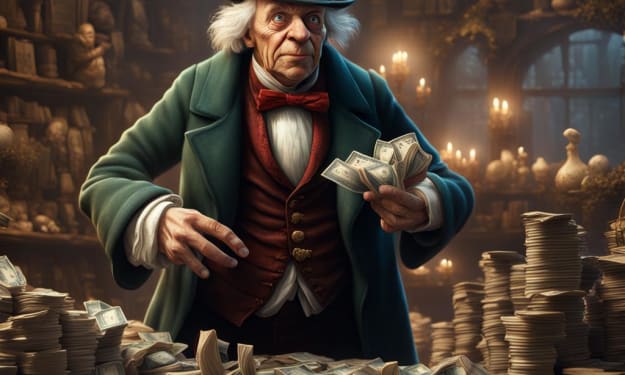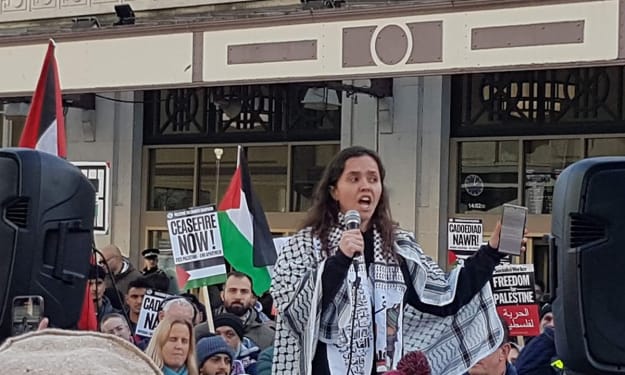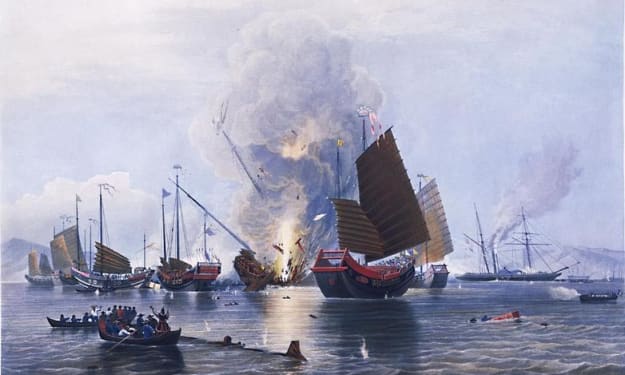history
Past politicians, legislation and political movements have changed the course of history in ways both big and small. Welcome to our blast to the past.
Why, When, and How was the Republican Party Formed in the United States
Introduction The birth of the Republican Party stands as a monumental moment in American political history. Understanding its roots involves delving into the rich tapestry of the nation's past and the fervent ideological undercurrents that shaped its inception.
Timothy A RowlandPublished 4 months ago in The Swamp

Political Standings Not Withstanding
A Message of Unity in Modern Political Division Across the United States, the country is divided by political views and beliefs. The level of division that currently exists in 2023, in fact, has not been seen in many decades, maybe even centuries. It could be argued that the USA has not been this divided since the days leading up to the civil war.
Timothy A RowlandPublished 4 months ago in The Swamp

Colorado Removes Trump from Ballad
For those who may have missed the news, a story was reported on by Newsmax telling how the state of Colorado has removed Donald Trump from the ballot for the 2024 Presidential election1. Not surprising since only 40% or so of the state is Republican. At least for now. This may increase that number.
Timothy A RowlandPublished 4 months ago in The SwampYOUTUBE
**YouTube: A Journey from Inception to Global Dominance** YouTube, the behemoth of online video streaming, has come a long way since its humble beginnings. Established in February 2005 by three former PayPal employees—Chad Hurley, Steve Chen, and Jawed Karim—YouTube has evolved into a cultural phenomenon that has reshaped the way we consume and share content.


The boondocks
I got into the then comic strip, “the boondocks” created by Aaron McGruder in my sophomore year of high school. I had all of the comic strip collections treasury. My grandmother would even cut out the strip for me that she saw in the newspaper and put it in an album every time she saw it. Thank you, grandma, Irene! The boondocks centers around three black kids – Huey, Riley, and friend Cesar and what it means to be black in America as seen through their eyes. Huey, is the main character, named after civil rights activist Huey P Newton.
RIKKI LA ROUGEPublished 4 months ago in The Swamp

Is It Racist to Not Like Porn With a Different Ethnicity in Lead
Introduction To start off with, let’s all just agree to be honest about one thing. Nearly everyone watches porn, regardless of age, race, sexuality, or gender… we all enjoy watching porn, at least on occasion. I’m aware the entire population does not watch porn, but let’s at least agree that the vast majority of us do. There is no shame in it at all. As long as you keep it under control and it doesn’t interfere with your actual life and relationships, you should be fine. It’s fantasy and it is useful, even if it is only watched for the short or not-so-short time that you need to get certain things done. There, now that we’ve gotten that out of the way, let’s dive deeper into the topic we are here to discuss.
Timothy A RowlandPublished 5 months ago in The Swamp

A Message to the Woke Youth
In a time of tumultuous change, where the winds of progressivism howl through the streets and digital corridors of the world, the youth stand at the forefront, brandishing the flag of wokeness. This essay inspired by the thought-provoking perspectives of James Lindsay, serves as a heartfelt missive to the young, woke generation, urging them to reconsider the path they tread, for it may lead not to the liberation they seek but to the very shackles they wish to escape.
Daniel StevensPublished 5 months ago in The Swamp

Private Enterprise vs Public Service
Introduction This is not a rant against good private enterprise, but it is NOT a public service, despite many politicians telling us that certain ones are. This is a bit of observational history and why the world is in such a terrible economic and climactic state because of people being sold the new god of money.
Mike Singleton - MikeydredPublished 5 months ago in The Swamp

A Palestinian's plea for life of her people to be valued by humanity
Israel’s genocidal campaign against the Palestinian people in Gaza and the West Bank is not an isolated atrocity... history is littered with similar inhumane examples of the savagery mankind is capable of. Cambodia, Vietnam, Sierra Leone, Somalia, Nazi Germany, the list is endless and spans centuries.
Steve HarrisonPublished 5 months ago in The Swamp

Could The War In Ukraine Have A Secondary Purpose?
‘Written by a Human’ This article is not about the Falklands War per-se’ but the reasoning behind many wars could show there could be a deeper reason for world conflicts and, ‘and one, You Would Not Expect.’
Dave WettlauferPublished 5 months ago in The Swamp

A Victim of Ignorance and Greed
Most of my adult life, I have been a renter or a guest. As a child, I was not expected to contribute financially to my mother's rent or mortgage payments. However, after high school graduation, as an independent adult, I was expect to afford my own housing. That expectation is not unfair, but for over 30 years, I have witnessed and experienced many leases or contracts or rental agreements that have been unfair and according to American history, illegal.
Shanon NormanPublished 5 months ago in The Swamp

The Poisoned Mastermind
Leyi Johnson was a brilliant mind, a master of mathematics and politics. He ruled the chessboard of Nobi, making his moves in the shadows, confident in his power. But 33 years ago, he was trapped in a deadly plot, a game he did not know he was playing. His enemies had rigged the chessboard, and he was a pawn in their hands. His academic excellence, his strategic genius, his pragmatic skills, all became useless against the dark forces that schemed against him. He was outsmarted, outplayed, and outlived by the very game he thought he had conquered. The chessboard, his domain, became his doom, and Leyi was checkmated by the hidden hands that moved the pieces.
Bagwasi DennisPublished 5 months ago in The Swamp



